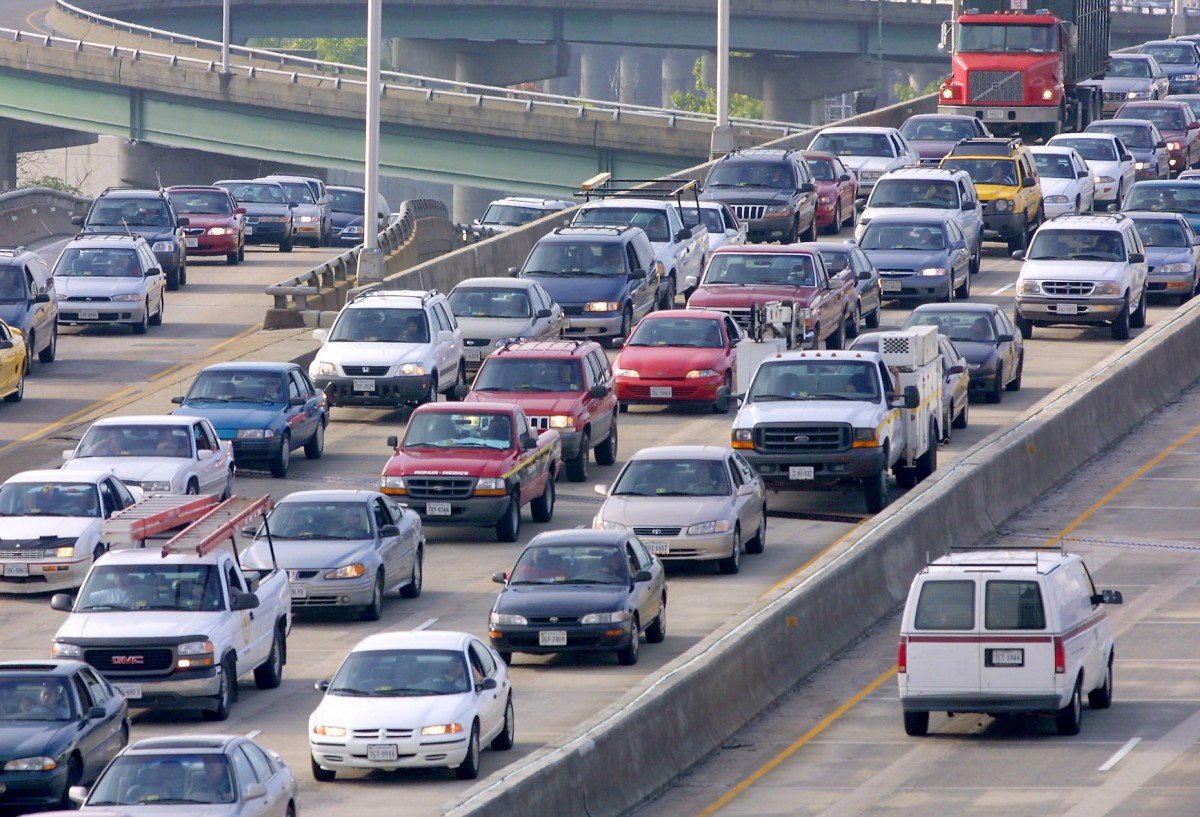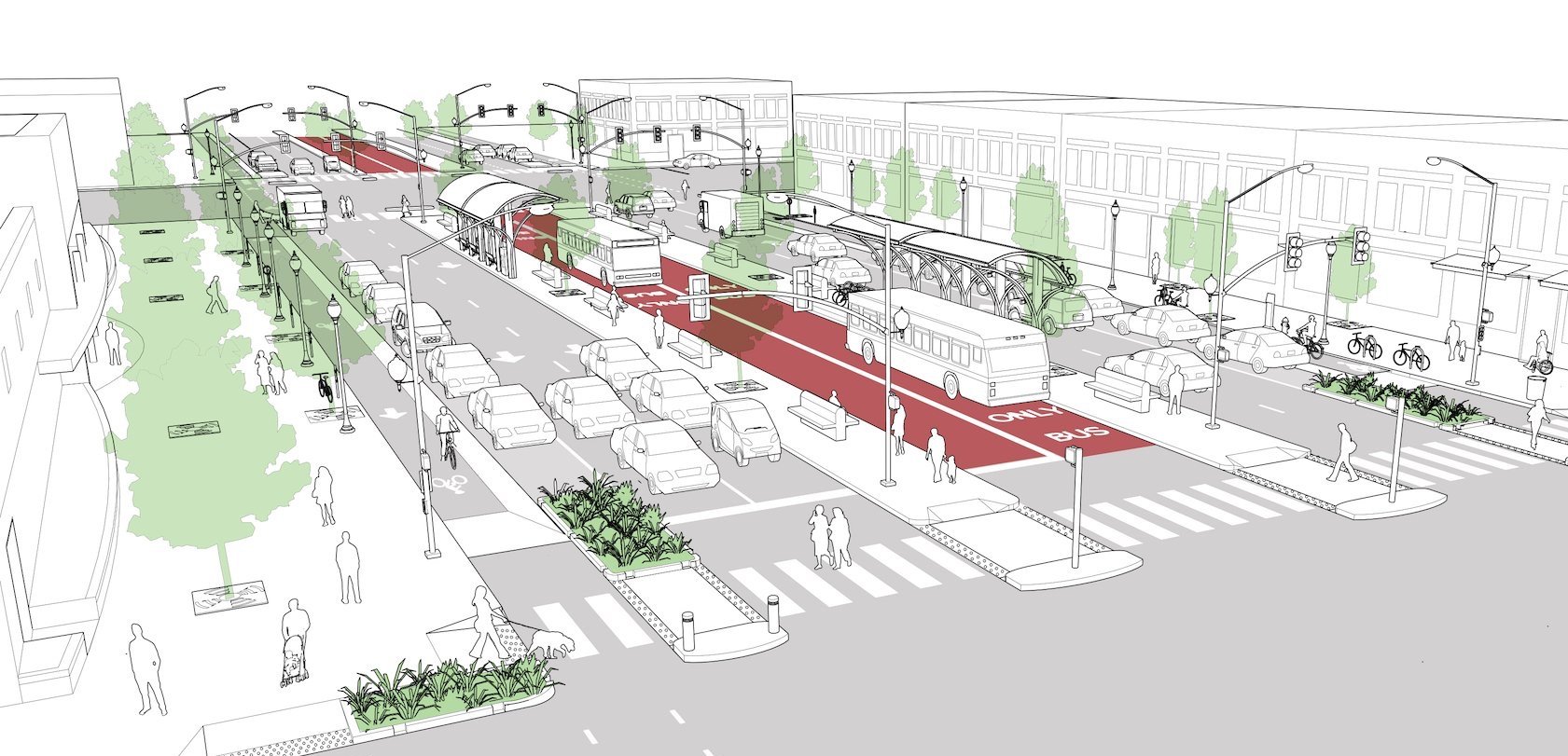
Car-dependency represents big government overreach.
Building good transit promotes freedom of transportation.
Car-dependency restricts life and liberty
Car-dependency is when the built environment requires a car for basic errands. It is enforced when the government only builds roads without alternatives like safe sidewalks, bike trails, or frequent transit. Car-dependency robs us of our freedom to move how we wish. In essence, it is the government saying “you will pay for a car, or we’ll trap you in your house.”
Car-dependency has deadly consequences. According to the CDC, road-related deaths are a public health crisis and kill 45,000 Americans a year, almost as many as all crimes and mass shootings combined. Additionally, car-dependency is especially deadly for vulnerable road users, such as pedestrians and bicyclists.
Because transit in America has been neglected for so long, it’s a common misconception that transit is always inconvenient or slower than driving. In reality, driving is only more convenient because, the US spends $206,000,000,000 each year to make driving more convenient. Transit, by comparison, gets less than a third as much funding, even while having a $176 billion investment backlog.
In fact, in a phenomenon termed “highway robbery”, state DOTs often falsify and manipulate traffic forecasts to justify highway expansions and spending money on roads. Using “junk” “pseudoscience”, traffic engineers spread fear of congestion
Governments lie to justify roads instead of transit
nightmare to scare taxpayers into paying for needlessly expensive and wasteful infrastructure, even though such “traffic modeling violates professional standards and federal rules”.
For a famously contentious highway bridge expansion in Portland, OR, an independent audit found that “[w]idening the bridge would do nothing to improve I-5 congestion and could make it worse,” that the DOT used “invalid traffic forecast metrics” which “rely directly on exaggerated forecasts from the regional model [translating] into unrealistic travel speed and travel time estimates, i.e. ‘garbage in – garbage out’”, and that “[t]ransit investments could help address I-5 congestion” but the DOT’s failure to realistically evaluate transit would result in “hyper-congestion”.
In effect, state DOTs manipulate traffic forecasts to justify building a larger fiefdom of state-owned land, and downplay alternatives that would threaten their dominance. Americans often think that driving is the best option, and that’s true, but only because reliable, high-quality alternatives have not been built and not because driving is a superior mode of travel.
Highway fraud is a problem in Pennsylvania
Right here in Pennsylvania, PennDOT has been accused of inflating traffic forecasts to justify highways nobody uses. Even though it’s tolled, PA-576 cost so much but gets so few drivers that it will take 57 years to pay off just its initial construction costs, not including maintenance. Meanwhile, PennDOT has spent thousands of dollars on unused equipment, has the second-most structurally-deficient bridges of any state, expands highways while defunding transit and maintenance, and, despite opposition, is currently building four “highway boondoggles”.
Quoting directly from local reporting on another billion-dollar rural highway expansion pushed for by PennDOT: “new highways are a waste of money. They’re bad for the environment on multiple levels. They do a poor job of relieving pressure on other roadways. When tolled, they’re classist… We should focus on maintaining the roadways we have rather than plowing through the area’s hills to make driving a smidge easier for exurbanites.”
And, despite all of this, PennDOT’s is getting more money for roads…
Ending car-dependency needn’t come at the expense of cars
Not everyone wants to drive, but making car-dependent communities forces everyone to drive for every errand, increasing congestion, even when they don’t want to. By building safe, convenient alternatives to driving into our infrastructure, those who choose not to drive won’t have to, and the roads will be freed up for those who still do. Building yet another highway does not address the underlying problems in congestion and safety.


